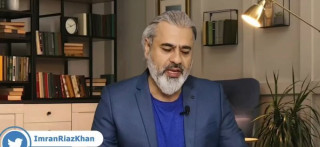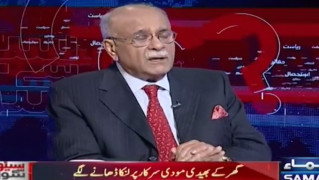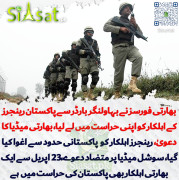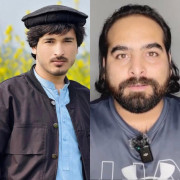AQLMANDJAHIL
Citizen
THE AWLIYA'S KASHF (UNVEILING) OF THE UNSEEN
Kashf or unveiling consists, according to al-Sharif al-Jurjani's definition in his Kitab al-ta`rifat, in "apprehending beyond the veil of ordinary phenomena, whether by vision or experience, the meanings and realities that pertain to the unseen." It is a kind of intuitive knowledge or discovery that typifies Allah's Friends, whose rank Allah extols with the affirmation:
Lo! Verily the friends of Allah are those on whom fear comes not, nor do they grieve (10:62).
Many sayings of the Prophet mention the various types and ranks of the saints, as Suyuti has shown in his collection of these sayings in his fatwa already mentioned entitled: al-Khabar al-dall `ala wujud al-qutb wa al-awtad wa al-nujaba' wa al-abdal or "The reports that indicate the existence of the Pole, the Pillars, the Leaders, and the Substitutes" in his Hawi li al-fatawi. These and other types of perfected individuals form the khawass or elite of the pious, whom Allah also calls the siddiqin (saints, literally "Most Truthful Ones") and ranks directly after the Prophets and before the Martyrs in the verse:
Whoso obey Allah and the Messenger, they are with those unto whom Allas has shown favor, of the Prophets and the saints and the martyrs and the righteous. The best of company are they! (4:69)
Their position in relation to Allah on the Day of Judgment is even described as an object of desire for the Prophets in the following sound hadith of the Prophet related by `Umar and others. This is the narration of Abu Malik al-Ash`ari from the Musnad of Imam Ahmad:
When the Prophet finished his prayer he turned to face the people and said: "O people! Listen to this, understand it, and know it. Allah has servants who are neither Prophets nor martyrs and whom the Prophets and martyrs yearn to be like, due to their seat and proximity in relation to Allah."
One of the beduin Arabs who came from among the most isolated of people twisted his hand at the Prophet and said: "O Messenger of Allah! People from humankind who are neither Prophets nor martyrs and yet the Prophets and the martyrs yearn to be like them due to their seat and proximity in relation to Allah?! Describe them for us!"
The Prophet's face showed delight at the Beduin's question and he said:
"They are of the strangers from this and that place. They frequent this or that tribe without belonging to them. They do not have family connections among themselves. They love one another for Allah's sake. They are of pure intent towards one another. On the Day of Resurrection Allah will place for them pedestals of light upon which He will make them sit, and He will turn their faces and clothes into light. On the Day of Resurrection the people will be terrified but not those. They are Allah's Friends upon whom fear comes not, nor do they grieve."[SUP]30[/SUP]
Another famous description of the characteristics of awliya was given by Sayyidina `Ali, as related by Ibn al-Jawzi in the chapter devoted to him in Sifat al-safwa:
They are the fewest in number, but the greatest in rank before Allah. Through them Allah preserves His proofs until they bequeath it to those like them (before passing on) and plant it firmly in their hearts. By them knowledge has taken by assault the reality of things, so that they found easy what those given to comfort found hard, and found intimacy in what the ignorant found desolate. They accompanied the world with bodies whose spirits were attached to the highest regard (al-mahall al-a`la). Ah, ah! how one yearns to see them!
The knowledge of the awliya' may attain higher levels than that of any other knowledge of humankind and jinn including in certain cases even the knowledge of Prophets. The preternatural knowledge or powers which Allah bestows on some of His friends (awliya') who are not Prophets have a firm basis in the Qur'an: for example, the wali who was with Prophet Sulayman and brought him the throne of Balqis faster than the blink of an eye. He was characterized as "one who had knowledge of the Book" as Allah stated:
One with whom was knowledge of the Scripture said: I will bring it thee (O Sulayman) before thy gaze returneth unto thee... (27:40)
and this is Prophet Sulayman's scribe Asif ibn Barkhya according to the Tafsir Ibn `Abbas and the majority of the scholars, i.e. a non-Prophet human being:
"One with whom was knowledge of the Scripture": i.e. an angel... or Jibril... or al-Khidr or Asif ibn Barkhya Sulayman's scribe, which is the most correct, and the jumhur (majority) agrees upon it...[SUP]31[/SUP]
Similarly, al-Khidr -- although considered by many to be a Prophet -- possessed knowledge which Prophet Musa did not have and he is characterized as "one of Our slaves, unto whom We had given mercy from Us, and had taught knowledge from Our presence" (18:66).
However, the greatest of Allah's Friends are those of the Community of the Seal of Prophets, and it is in this sense that Abu Yazid al-Bistami's declaration must be understood whereby "We have crossed an ocean on the shores of which stood the Prophets." That is: the awliya' of the Community of the Prophet Muhammad, blessings and peace upon him, have inherited from him a knowledge and a position which the Prophets of Banu Isra'il yearned to attain. This is established by the hadith of Abu Malik al-Ash`ari we have just cited, and yet this does not contradict the fact that the Prophets are by far Allah's elect in creation, as Imam Tahawi's article of faith makes clear:
We do not prefer any of the saintly men of the Community over any of the Prophets but rather we say that any one of the Prophets is better than all the awliya' put together.[SUP]32[/SUP]
The word for both vision and true dream is ru'ya, which Allah mentions in the Qur'an thus: "Allah has fulfilled the vision (ru'ya) for his Messenger in very truth" (48:27). The Prophet said:
The vision or dream (al-ru'ya) is one-fortysixth part of prophecy.[SUP]33[/SUP]
When the Time draws near, almost no vision or dream of the believer will be false. The believer's dream is one-fortysixth part of prophecy, and prophecy never lies.
Whoever sees me in vision or dream sees me (truly), for Satan cannot take on my form, and the believer's dream is one-forty-sixth part of prophecy.
Among the greatest of lies is to ascribe to one's eyes the sight in a vision or dream of what one did not see.
Nothing remains of prophecy except the glad tidings (mubashshirat). They asked him: What are they? He said: The good vision or dream. (al-ru'ya al-saliha).[SUP]34[/SUP]
That kashf is an opening granted by Allah that is completely independent of one's own exertion or capacity for learning is clear from the saying of Abu Hurayra: "I have retained from the Prophet two large vessels of knowledge":[SUP]35[/SUP] he used the term "vessels" to preclude the connotation of learning on his part, since liquid is not taught to the vessel, but poured in it. This indicates a state of passive receptivity, independent of exertion or skill. Another hadith, also in Bukhari, confirms that the Prophet was literally pouring knowledge into Abu Hurayra rather than teaching it:
Narrated Abu Huraira: I said, "O Allah's Apostle! I hear many narrations from you but I forget them." The Prophet said, "Spread your covering sheet." I spread my sheet and he moved both his hands as if scooping something and emptied them in the sheet and said, "Wrap it around you." I wrapped it round my body, and I have never since forgotten a single Hadith.[SUP]36[/SUP]
Just as the true dream is a characteristic of the believer, so is kashf a characteristic of belief according to the following hadith:
From al-Harith ibn Malik al-Ansari (some chains have: al-Haritha ibn al-Na`man al-Ansari): He passed by the Prophet who asked him: "How are you this morning O Haritha [sic]?" He replied: "This morning I am a real believer." The Prophet said: "Take care of what you say: what is the reality of your belief?" He said: "I have turned myself away from this world by keeping awake at night and by keeping myself thirsty by day; and I can almost see the Throne of my Lord in full sight; and I can see the people of the Garden of Paradise visiting each other; and I can almost see the people of the Fire wailing to each other in it." The Prophet said: "O Haritha, you do know: therefore cleave to it." Some versions add: "This is a believer, Allah has illumined his heart" (mu'minun nawwara Allahu qalbah).[SUP]37[/SUP]
The Prophet highlighted `Umar's gift in this respect in particular:
In the nations before you were people who were spoken to (muhaddathun) though they were not prophets. If there is anyone in my Community, it is `Umar ibn Khattab.
It is related by Bukhari, Muslim, Abu Dawud, Tirmidhi, and Ahmad. It is elucidated by the two hadiths in Tirmidhi (which he graded hasan) whereby "Allah has engraved truth on the tongue of `Umar and his heart" and "If there were a prophet after me verily it would be `Umar." Tirmidhi adds to the muhaddath narration that according to Ibn `Uyayna "spoken to" means "made to understand" (mufahhamun), while in his narration Muslim adds: "Ibn Wahb explained "spoken to" as meaning "inspired" (mulhamun)," and this is the majority's opinion according to Ibn Hajar in Fath al-Bari (7:62:#3689) who adds "spoken to" means "by the angels." Nawawi and Ibn Hajar said respectively in Sharh Sahih Muslim and Fath al-Bari:
The scholars have differed concerning "spoken to." Ibn Wahb said it meant: "inspired" (mulhamun). It was said also: "Those on the right, and when they give an opinion it is as if they were spoken to, and then they give their opinion. It was said also: the angels speak to them... Bukhari said: "Truth comes from their tongue." There is in this a confirmation of the miracles of saints (wa fihi ithbatu karamat al-awliya).[SUP]38[/SUP]
The one among [Muslims] who is "spoken to," if his existence is ascertained, what befalls him is not used as basis for a legal judgment, rather he is obliged to evaluate it with the Qur'an, and if it conforms to it or to the Sunna, he acts upon it, otherwise he leaves it.[SUP]39[/SUP]
One of the "Salafis" claimed that since the hadith states "If there is anyone in my Ummah, it is `Umar," it must follow that at most the number of such inspired people is one. However, it is wrong to think that other Communities had many but this Community only one, as Ibn Hajar also stated in his commentary on that hadith. What is meant by the hadith is the perfection of the quality of ilham (inspiration) in `Umar, not its total lack in other Muslims, and Allah knows best.
The exalted status of the knowledge and power of the awliya' is referred to in the verses "Those who strive hard in Us, We shall most surely guide them in our Ways" (29:69) and ittaqullah wa yu`allimukumullah ("Be aware of Allah, and Allah Himself will teach you" 2:282), and the hadith man `amila bi ma `alima warrathahullahu `ilma ma lam ya`lam ("Whoso acts upon what he knows, Allah will make him inherit a knowledge that he did not have").[SUP]40[/SUP]Our master Bayazid al-Bistami cited this hadith in response to some "Salafi" types in his time who were asking him: "From where and from whom did you get this knowledge which you claim to have?"[SUP]41[/SUP]The Shaykh al-Hakim[SUP]42[/SUP] al-Tirmidhi in the second chapter of his Adab al-muridin describes such striving as a kind of door which leads to nearness to Allah, and Shaykh Abd al-Qadir al-Gilani refers to the knowledge and power that result from it in Discourse 16 of Futuh al-ghayb:
And fear Allah and He will teach you, then He will invest you with the power of controlling the universe with a clear permission which will have no obscurity in it... and He has done this with many of His Prophets and awliya and people especially favored from among the children of Adam.
To receive such knowledge is called a karama [gift] for the saint and a mu`jiza [act that disables opposition] for the Prophet. The process of receiving it is similarly differentiated: as wahy [revelation] for the latter and ilham [inspiration], ru'ya [vision], kashf [disclosure], firasa [piercing sight], mubashshira [glad tidings from Allah], mukashafa [disclosure], mushahada [mutual vision], or mukhataba [divine conversation] for the former. Shaykh `Abd al-Qadir al-Gilani said in Discourse 9 of his Futuh al-ghayb:
To awliya' and abdal (Substitute-saints) are disclosed such workings of Allah in the course of kashf and mushahada as overwhelm the reasoning power of man and shatter into pieces all habits and customs.
al-Siraj al-Tusi in his famous book al-Luma` (The lights), a compilation of the sayings of the Sufis, mentions the following two definitions of the conditions of kashf:
Abu Muhammad al-Jurayri said: "Whoever does not work to fulfill what lies between him and Allah the Exalted by way of godfear and vigilance, will never reach unveiling and contemplation." al-Nuri said: "The uncoverings of the eyes are through eyesight, and the uncoverings of the hearts are through connection (ittisal)."[SUP]43[/SUP]
One of the highest examples of such favor is undoubtedly the meeting and true vision of the Prophet, which is a reality established in the hadith of seeing the Prophet in dream, and documented through the relations of the trustworthy from the Companions to the Successors and their Successors down to our day. Some of these relations have been recorded in Suyuti's fatwa Tanwir al-halak fi imkan ru'yat al-nabi wal malak (The illumination of intense darkness through the possibility of seeing the prophet and the angels) in his Hawi li al-fatawi. We have already mentioned in the section discussing the evidence that the Prophet hears and sees us al-Haytami's answer in his Fatawa hadithiyya whereby it is possible for Allah's Friends to meet the Prophet while awake in our time.[SUP]44[/SUP] They can also meet al-Khidr, as Sakhawi relates about Imam Nawawi:
It is well-known that he (Imam Nawawi) used to meet with al-Khidr and converse with him among many other mukashafat.[SUP]45[/SUP]
The exalted status of the saints' firasa is mentioned in the hadith whereby the Prophet said: ittaqu firasat al-mu'min fa innahu yara bi nurillah "Beware the vision of the believer, for he sees with the light of Allah," then he recited the verse: "Therein lie portents for those who read the signs" (al-mutawassimin) (15:75).[SUP]46[/SUP] Tirmidhi narrated this authentic hadith in the Book of the Commentary of Qur'an in his Sunan and said that some of the commentators have explained "Those who read the signs" as meaning: those who possess vision (al-mutafarrisin)." al-Sakhawi in al-Maqasid al-hasana (#23) mentions another authentic hadith whereby the Prophet said: "Allah has servants who know (the truth about people) through reading the signs" (tawassum).[SUP]47[/SUP]
It is established in the sound hadith that at the end of time every Muslim will be endowed with this ability to "ready the signs," so that he will be able to recognize the dajjal or antichrist as a disbeliever by reading the letters K-F-R over his forehead.[SUP]48[/SUP]
It is related that the firasat of a pious shaykh was at the origin of Ibn Hajar al-`Asqalani's decision to take up the study of jurisprudence rather than devote himself exclusively to hadith:
Ibn Hajar said:"He (Muhibb al-Din al-Wahidi al-Maliki) said to me: "Invest some of that energy of yours into fiqh, for I see by way of firasat that the scholars of this country (Egypt) are going to be depleted, and there will be need of you, so don't indulge yourself." And his word to me helped me greatly, and I still pray for him for that reason, may Allah have mercy on him."[SUP]49[/SUP]
The following account of firasa is related about Imam al-Junayd al-Baghdadi:
Abu `Amr ibn `Alwan relates: I went out one day to the market of al-Ruhba for something I needed. I saw a funeral procession and I followed it in order to pray with the others. I stood among the people until they buried the dead man. My eyes unwittingly fell on a woman who was unveiled. I lingered looking at her, then I held back and began to beg forgiveness of Allah the Exalted.
On my way home an old woman told me: "My lord, why do I see your face all darkened?" I took a mirror and behold, my face had turned dark. I examined my conscience and searched: In what did calamity befall me? I remembered the look I cast. Then I sat alone somewhere andI began to ask Allah's forgiveness assiduously, and I asked to do with little for forty days. (During that time,) the thought came to my heart: "Visit your shaykh al-Junayd." I travelled to Baghdad. When I reached the room where he lived, I knocked at his door and heard him say: "Enter, O Aba `Amr, you sin in al-Ruhba and we ask forgiveness for you here in Baghdad."[SUP]50[/SUP]
The possessor of such gifts and powers of vision is of course in no way exempted from the obligations of religion. Abu al-Hasan al-Shadhili warned:
If your kashf opposes the Book and the Sunna, leave kashf and tell yourself: Allah has guaranteed infallibility to the Book and the Sunna, but He has not guaranteed it for kashf.[SUP]51[/SUP]
Ibn `Arabi similarly said:
Someone in this Community who claims to be able to guide others to Allah, but is remiss in but one rule of the Sacred Law -- even if he manifests miracles that stagger the mind: ... we do not even turn to look at him, for such a person is not a shaykh, nor is he speaking the truth, for no-one is entrusted with the secrets of Allah Most High save one in whom the ordinances of the Sacred Law are preserved.[SUP]52[/SUP]
Shaykh `Abd al-Qadir Gilani says the same thing in the Futuh. And their leader in this is the Sultan of the Knowers of Allah Bayazid al-Bistami who said:
If you see him fly in the air and walk on water do not be deluded by him, but see how he stands on the orders and the prohibitions.[SUP]53[/SUP]
It is evident from the definition of the term kashf that it refers to a hidden knowledge of a tremendous nature, and that is what Ibn `Arabi meant by saying "the secrets of Allah Most High," as is alluded by continuation of the hadith of Abu Hurayra mentioned above:
I have stored up from the Prophet two large vessels of knowledge. One I have disseminated among the people; if I were to disseminate the other, they would cut my throat.
Imam Bukhari said: "The Knowers (al-`ulama') are the inheritors of the Prophets, that is: they have inherited (their) knowledge."[SUP]54[/SUP] The first part of his statement is actually an authentic hadith of the Prophet.[SUP]55[/SUP] Thus it is beyond anyone's reach to put limitations on the gifts Allah bestows on His Friends, except that we give such gifts different names -- mu`jiza or karama -- depending whether the recipient is a Prophet or a saint. Nor is it impossible that some saints of the Prophet's Community, like the Prophet himself, do know the Unseen except for what Allah hides from them and reserves to others of His creatures -- such as angels -- or exclusively to Himself, according to His will.
The inheritorship of the Prophet's knowledge by the great scholars is illustrated by al-Khatib's relation from al-hafiz Abu Nu`aym already mentioned, whereby Abu Nu`aym considered it incumbent upon all Muslims to invoke Allah for Abu Hanifa in their prayer due to his preservation of the Prophet's Sunan and fiqh for them.[SUP]56[/SUP] Another example is the following account about Imam Malik related by Ibn al-Jawzi in the chapter entitled "Layer 6 of the People of Madina" of his book Sifat al-Safwa:
Abu Mus`ab said: I went in to see Malik ibn Anas. He said to me: Look under my place of prayer or prayer-mat and see what is there. I looked and I found a certain writing. He said: Read it. (I saw that) it contained (the account of) a dream which one of his brothers had seen and which concerned him. He said (reciting what was written): "I saw the Prophet in my sleep. He was in his mosque and the people were gathered around him, and he said: I have hidden for you under my pulpit (minbar) something good -- or: knowledge --and I have ordered Malik to distribute it to the people." Then Malik wept, so I got up and left.[SUP]57[/SUP]
Observe the attitude of the awliya towards the meeting with the Prophet in dream and their strong belief both in the absolute credibility of such dreams and their particular contents. This one explicitly states that the Prophet has kept something good hidden for his Umma, and that he continues to give it through one of the greatly learned `ulama after his time.
Similarly Imam Ahmad cited in Kitab al-zuhd,also Ibn Abi al-Dunya, Abu Nu`aym, Bayhaqi, and Ibn `Asakir from Julays from Wahb ibn Munabbih who said: I saw the Prophet in my sleep, so I said: "Ya Rasulallah, where are the Substitutes (budala') of your Community?" So he gestured with his hand towards Syria. I said: "Ya Rasulallah, aren't there any in Iraq?" He said: "Yes, Muhammad ibn Wasi`, Hassan ibn Abi Sinan, and Malik ibn Dinar, who walks among the people similarly to Abu Dharr in his time."
The "Salafis" have claimed in their ignorance that the principles of kashf and of the inheritorship of the Prophet in any sense other than memorization or bookish learning contradict Allah's saying: "Today I have perfected your religion, completed my favor upon you, and accepted for you Islam as religion" (5:3) and the Prophet's status as having conveyed the Message to the people perfectly. They also direct the same false claims to ijtihad (qualified independent reasoning), ijma` (consensus of the scholars), and qiyas (analogy) themselves, as al-Zahawi showed in his refutation of the Wahhabi heresy:
They (Wahhabis) denounce [the `ulama] by saying that the Imams believe that the religion of Islam is deficient and that they complete it by "reasoning" like ijma' and qiyas. For this, they cite the Qur'anic verse: "Today I have completed your religion." (3:5) They say we find whatever is necessary for life clearly stated in the Qur'an. So what need do we have for qiyas. The texts take in the whole of life's eventualities without need of derivation (istinbat) and analogy (qiyas)...[SUP]58[/SUP]
The sect of the Mu`tazila did not believe in the miracles of the saints, and some today even claim: "The awliya are not known except to Allah, and there is no such thing as kashf in the shari`a" and "We only trust a person whom Allah or His Messenger ordered us to trust, but as for those claimed awliya', there is no specific evidence about them from Allah or His Messenger" as a way to withhold their respect from the pious or pay it out stingily and reluctantly.
These are all matters in which the "Salafis" and those who deny kashf reveal their Mu`tazili leanings. One of them even said: "The sufi-doctrine of "miracles of saints" claims that the awliya' have control over it. Of course they say by Allah's will. (Also, the sect of the Shi`ah believe in that!)"
Observe how he contradicted himself in his haste to cast blame upon a figment of his imagination: on the one hand he makes his concocted "sufi-doctrine" claim control over the elements, yet on the other he makes those who hold that doctrine ("they") say: "By Allah's will," which eradicates any claim of autonomous control! Observe also how they ascribe belief in karamat, which is obligatory in Islam, to the Shi`a.
In all of the above the "Salafis are roundly refuted by no less than Ibn Taymiyya, the most learned among the authorities they claim to follow and a self-proclaimed disciple of al-Gilani whom he calls "my shaykh" and "my master":
It is established that the awliya' possess spiritual communications (mukhatabat) and unveilings (mukashafat).[SUP]59[/SUP]
Another of the principles of Ahl al-Sunna is the faith in the karamat of the awliya, and in whatever Allah causes to happen at their hands of the suspension of the laws of nature in all kinds of knowledge and spiritual unveilings (fi anwa` al-`ulum wa al-mukashafat), and all kinds of powers and influences (wa anwa` al-qudra wa al-ta'thirat) such as reported concerning the ancient Communities, (for example) in al-kahf and others, and as reported from the early beginnings of this Community regarding the Companions and the Followers and from every generation of Muslims after that, and these miracles will not cease to take place in this community until the Day of Resurrection (wa hiya mawjudatun fiha ila yawm al-qiyama)."[SUP]60[/SUP]
The miracles of saints (karamat al-awliya') are absolutely true and correct, by the acceptance of all Muslim scholars and Ahl al-Sunna wa al-Jama`a [i.e. as opposed to the Mu`tazila]. The Qur'an has pointed to them in different places as well as the authentic hof the Prophet and the reports transmitted from the Companions and the Successors through a large number of sources. Only the innovators such as the Mu`tazila and the Jahmiyya and their followers deny them.[SUP]61[/SUP]
What is considered as a miracle related to knowledge is that sometimes the servant might hear something that others do not hear and see something that others do not see, whether in a wakeful or sleeping state of vision. And he can know something that others cannot know, through revelation or inspiration, or the dawning of necessary knowledge upon him, or truthful piercing sight (firasa sadiqa), and such is called kashf, mushahadat, mukashafat, and mukhatabat.[SUP]62[/SUP]
The hafiz al-Harawi al-Ansari who is the model of "Salafis" in their fight against Ash`aris, spoke the following words about kashf in his books Manazil al-Sa'irin (Stations of the Wayfarers) and `Ilal al-maqamat (The Flaws in the Stages):
Regarding the word "finding" in the verses:
"He will find Allah forgiving, merciful" (4:110)
"They would have found Allah forgiving, merciful" (4:64)
"... and he finds Allah" (24:39)...
It has three meanings: first, it is the finding of knowledge emanating from the divine Presence; it cuts off knowledge based on observations with the soundness of disclosure (mukashafat) from Allah to you.[SUP]63[/SUP]
The renunciation (zuhdof the privileged is to keep their aspiration (himmat) away from the world, because Allah has kept them from depending on circumstances thanks to the light of unveiling (nur al-kashf).[SUP]64[/SUP]
We would like to hear from the "Salafi" opponents of Ahl al-Sunna which one, of Ibn Taymiyya or al-Harawi, they consider the greatest innovator for stating the above views. Are they placing Ibn Taymiyya among those who hold the beliefs of "the sect of the shi`a"? Or do they still claim that belief in the miracles of saints is a "sufi-doctrine"? Or do you still say that the "claims that the awliya' have control over it. Of course they say by Allah's will" is what the Shi`a believe but not the Sunni? Or is Ibn Taymiyya and al-Harawi using kashf to attain the above conclusions? And if they accept what Ibn Taymiyya and al-Harawi say, why don't they accept the same from others if not because of partisanship and/or blind-following?
As for their claim that the awliya' are not known, it shows ignorance of the Religion, whose sources are replete with their descriptions. We have already quoted from the Qur'an, the hadith, and the sayings of the Companions concerning their characteristics. Allah said: "O those who have believed! Be God-wary and stay with the truthful!" (9:119) and "Who comes against one of my walis, I declare war upon him!" (Bukhari). The Prophet said: "There are some among Allah's servants who, when they swear by Allah, He vindicates them" (Bukhari and Muslim). Is all this referring to unidentifiable beings known to Allah alone? Ibn al-Jawzi in his Sifat al-safwa went so far as to call the saints "the very purpose of existent beings," and if this is true how can they not be known or trusted?
The Friends of Allah and the Righteous are the very purpose of all that exists (al-awliya wa al-salihun hum al-maqsud min al-kawn), they are those who learnt and practiced with the reality of knowledge... Those who practice what they know, do with little in the world, seek the next world, remain ready to leave from one to the other with wakeful eyes and good provision, as opposed to those renowned purely for their knowledge but not for shunning the world and practicing devotion.[SUP]65[/SUP]
The "Salafis" also object to the title of Ghawth or Arch-helper given to Shaykh `Abd al-Qadir al-Gilani and label it with innovation and shirk, claiming that it belongs only to Allah. When confronted with evidence to the contrary from the sound hadith, they remain speechless:
1. Bukhari narrates in his Sahih that our mother Hajar, when she was running in search of water between Safa and Marwa, heard a voice and said: "O you whose voice you have made me hear! If there is a ghawth (help/helper) with you (then help me)!" and an angel appeared at the spot of the spring of Zamzam.
2. Abu Ya`la, Ibn al-Sani, and Tabarani in al-Mu`jam al-kabir narrated that the Prophet said: "If one of you loses something or seeks help or a helper (ghawth), and he is in a land where there is no-one to befriend, let him say: "O servants of Allah, help me! (ya `ibad Allah, aghithuni), for verily Allah has servants whom he does not see." Haythami said in Majma` al-zawa'id (10:132): "The men in its chain of transmission have been declared reliable despite weakness in one of them."
3. Ahmad relates in his Musnad (4:217) that at the time of the greatest fitna of the Dajjal, when the Muslims will be at their weakest point and just before `Isa ibn Maryam descends at the time of salat al-fajr, people will hear a caller calling out three times: "O people, al-ghawth (the helper) has come to you!"
The "Salafis," ignoring the authorities that fail to support them and relying instead on what they can use wherever they find it, turn with glee to Muhammad ibn `Abd al-Wahhab's aberrant statement in his Three Principles of Oneness already cited: "One who claims to know something from knowledge of the Unseen is a taghut or false deity." They apply this falsehood to saints but some of them fall short, in their selective logic, of applying it to Prophets, and by so doing desert Ibn `Abd al-Wahhab: for his statement evidently does not preclude anyone -- prophet, angel, jinn, or any human being -- from falling within its scope.
Yet even with respect to saints the false bases of their thinking had long since been exposed by one of the scholars of the Community, Shaykh al-Islam Ibn Hajar al-Haytami. Would that they had only acquainted themselves with his fatwa on the matter and reflected upon it, instead of giving precedence to a lesser scholar on the basis of their whim. This fatwa is translated in full in The Reliance of the Traveller, from where we quote it.
Last edited:































